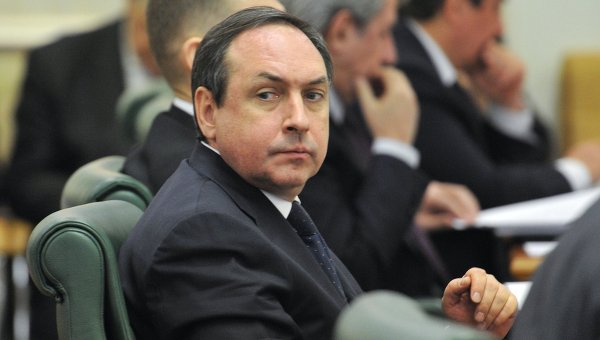On 27 January 2016, the State Duma of the Russian Federation held a “government hour” with Dmitry Livanov, Minister of Education and Science. Vyacheslav Nikonov, head of the State Duma Committee on Education and Chairman of the Management Board of the Russkiy Mir Foundation, gave a speech after the meeting.
For the last time, the members of the sixth State Duma
discuss the problems in education and the corresponding state policy during a “government hour.” We tend to forget that we are part of the state and our work is part of the state policy. The Government forgets that too, it seems, as the report provided by the Government does not include a single mention of the legislation or regulation in education. However, we do have something to report to our voters.
Photo: RIA Novosti
We did a pretty good job. We passed a comprehensive law on education that prioritizes the rights of students and educators. We solved the issue of the dearth of kindergartens for children aged 3 to 7 during our budget battles. We prevented budget cuts: the education budget for 2016 has 18 billion roubles more than the year before, and I suggest we continue saving the budget together. We made amendments and allocated additional 50 billion roubles for school construction.
We made e-learning and distance education a reality. We gave orphans and children without parental care benefits for higher education; we brought school uniforms and medals back, introduced the concept of portfolios to keep track of students’ accomplishments and brought the GTO system back; it will now be part of the portfolio. Together, we brought school essays back, while the integrity and transparency of the Uniform State Exams substantially improved thanks to our recommendations. We created a legal framework for the regulation of boarding fees and parent fees. We established priority rights for children of Defense Ministry officials, public prosecutors and members of the Investigative Committee willing to study in cadet schools and the like.
We integrated Crimea and Sevastopol into the Russian education system, and that was no small feat. Graduates of Crimean schools now have preferences in Russian universities.
We created a legal framework to get rid of quasi-universities. We established students’ right to attend state and municipal museums free of charge; regrettably, the Ministry of Culture has not yet issued an order on enacting our law. We permitted the Moscow State University and the St. Petersburg State University to create joint universities with their foreign partners and gave them additional financing; we also gave military students the right to travel to their holiday destinations for free.
We put in a lot of effort to ensure the education system in Donetsk and Luhansk People’s Republics works, so that their schools could have textbooks printed in our country, their children could go to school, teachers and college professors could earn their living and every college graduate could get two certificates—including one from Russia.
This year, we allocated additional funds to support talented children and youth; our projects provide for building swimming pools in universities and gyms in village schools. We have a positive agenda and we know what to pursue.
We should work out a state strategy for education development. Budget cuts are out of the question—there is nothing to cut! Neither can we cut the wages of federal or regional education workers. We should carry out all of our obligations. There is a need to accelerate school construction and renovation. The problem is massive! We allocated 3 trillion roubles for 9 years—it requires diligent supervision from all parties, including the Parliament.
We need to ensure universities are no longer harassed by establishing a law according to which government agencies would have no right to ask educational institutions for the information easily available at their websites.
We need to prohibit raising parent fees, boarding and higher education fees over the inflation limit.
We need to ensure universities are not pressured into consolidating—that can only be decided by the staff.
Lastly, we need a crisis management plan for education, because we need to invest in our future. Education is our future!








